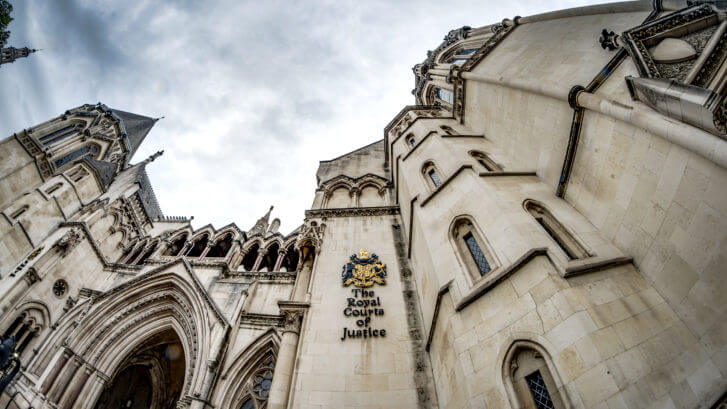New provisions to introduce Unexplained Wealth Orders (‘UWOs’) to English law are part of a process to extend the powers of the state to restrain and recover assets that are thought to represent the proceeds of crime, already described as ‘draconian’ in numerous judgments. The powers, set out in the extensive and much-amended Proceeds of Crime Act 2002 (‘POCA’), were the subject of a set of proposals in a joint Home Office/HM Treasury Action Plan for Anti-Money Laundering and Counter-Terrorist Finance (‘the Action Plan’) in April last year. Some, but not all, of those proposals found their way into the Criminal Finances Act 2017 (‘the Act’). Several of the provisions in the Act, including those on UWOs, come into force today (31 January 2018).
The concept of ‘unexplained wealth’, though familiar in other jurisdictions, is somewhat novel to English law: the framework of POCA until now has allowed assets to be frozen only where investigators have at least a good arguable case that they represent the proceeds of crime, or a reasonable suspicion that they belong to someone who has benefited from crime. The new provisions mean that the High Court will be able to order a person to explain within a specified period what interest they have in specified property, and how they obtained it, in two rather different scenarios.
The first scenario is where the court is satisfied that the holder of the property is a Politically Exposed Person (‘PEP’). This is a concept adapted from EU Money Laundering Directives, which broadly means an individual who has been entrusted with prominent public functions by an international organisation or a state (other than the UK or another EEA state), or a ‘family member’ or ‘close associate’ of such a person. Unhelpfully perhaps, the Act refers the reader to the latest (Fourth) EU Directive for the detail of this concept. As an indication, PEPs include ministers, MPs and senior judges; ‘family members’ includes spouses (or equivalents), children (and their spouses), and parents; and ‘close associate’ includes people who own property with or for, or have close business relations with a PEP.
The second scenario is that the court is satisfied that there are reasonable grounds for suspecting that the holder, or a person ‘connected’ with them, has been involved in ‘serious crime’. Again, the reader is referred to other documents for the meanings of these concepts: as an indication, ‘connected’ (as defined in the Corporation Tax Act 2010) includes (for example) spouses (or equivalents) of close relatives, and vice versa; and ‘serious crime’ (as defined in the Serious Crime Act 2007) includes corruption, fraud, and money laundering.
In both scenarios, the court also has to be satisfied that the value of the property exceeds £50,000, and that there are reasonable grounds for suspecting that the known sources of the holder’s lawfully obtained income would have been insufficient for the purposes of enabling them to obtain the property. The property in question can (and no doubt invariably will) be frozen pending an answer from the holder, by way of an Interim Freezing Order (IFO). If there is no answer, the property will be presumed to be recoverable for the purposes of a civil recovery order, unless the contrary is shown. If there is an answer, the investigators have 60 days in which to decide whether to try to take further action against the property, or release it. Making a false statement in response to a UWO is an offence.
In essence, then, the point of UWOs is to introduce a preliminary step prior to either civil recovery or criminal proceedings, where investigators need not necessarily have even a suspicion that the property represents the proceeds of crime or that its holder is guilty of an offence. Where, for whatever reason, the holder is unable or unwilling to provide a statement, the effect is to reverse the burden of proof in civil recovery proceedings, which are designed to freeze and recover assets that represent the proceeds of crime. Where a statement is provided, although it cannot itself generally be used in criminal proceedings, it may be valuable intelligence for the purposes of a criminal investigation.
Notably, there are only limited provisions for compensation for the innocent holder of legitimate property, who has given an acceptable explanation at their own expense, and then had to wait 60 days for the investigators to accept it. As well as showing that he has suffered loss as a result of an IFO, to obtain compensation the holder would need to show that it was made as a result of a ‘serious default’ on the part of the authority that applied for it.
These proposals do not go quite as far as those in the Action Plan itself, which also included an offence of ‘illicit enrichment’ (which would have effectively criminalised PEPs who could not explain their wealth). Conversely however, it must be noted that the context given for the proposal in the Action Plan was squarely about cases of foreign corruption where (for various reasons) it was impractical to expect assets to be restrained and recovered through a criminal justice route. The provisions in the Act are far broader, and though they will no doubt make it easier for the proceeds of such offences to be recovered, there must be a risk that they will also cause inconvenience and injustice to innocent holders of perfectly legitimate property, for which explanations may be difficult to obtain, or not be readily accepted by the authorities.
If you’d like to discuss any of the issues raised in this article with one of our solicitors then please get in touch in the strictest confidence.
John Binns is a partner in BCL’s business crime department, specialising in all aspects of the Proceeds of Crime Act 2002 (POCA).

